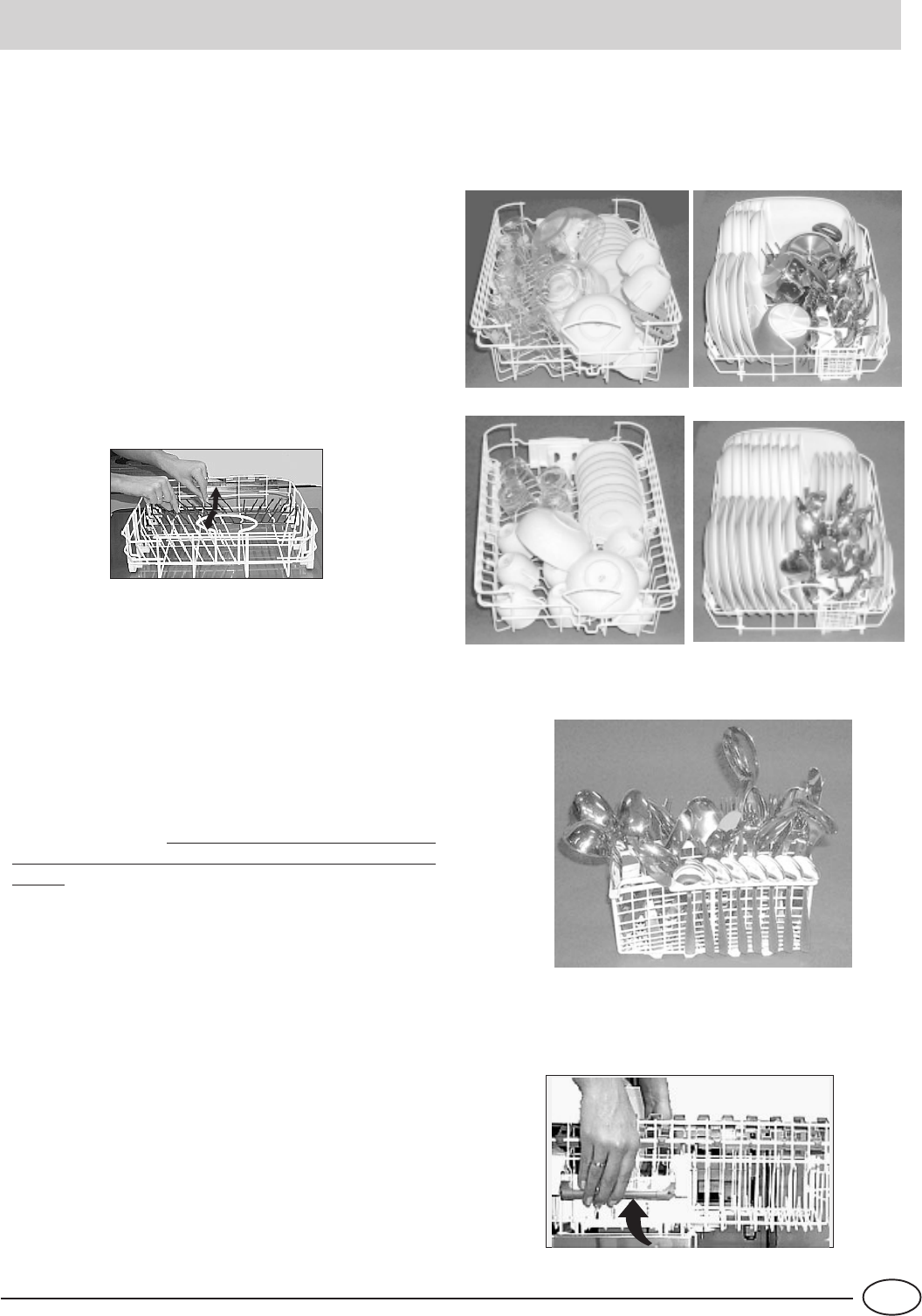
5
EN
Loading the Dishwasher
Before placing the dishes in the racks, remove the largest
scraps of food left over on your plates, you will thus avoid
blocking the filter, which would reduce the efficacy of the
wash.
If the saucepans and frying pans are very dirty, allow them to
soak before being washed.
You will thus avoid having to wash them again.
To make it easier to load your dishes, pull the racks out fully.
How to use the lower rack
We recommend you place the most difficult dishes to wash
into the lower rack: saucepans, lids, soup dishes and plates
(load examples are shown in the photo).
The lower rack has tip-up sectors (see figure B), so you can
place even more saucepans and frying pans or make room
for the larger one
• Serving dishes and large lids: place them on the sides
of the rack.
• Saucepans, salad bowls: must always be placed upside
down.
• Very deep dishes: place them obliquely, thus allowing
water to run down them and cleaning them better.
The cutlery basket (Fig. A)
This basket is equipped with a grids: insert the cutlery one
by one into the slots; knives and utensils with sharp blades
or tips should be positioned with the sharp parts at the
bottom.
Position all cutlery items so that they don't touch.
Especially long utensils should be placed in the horizontal
position at the front of the upper rack.
How to Use the Upper Rack
The upper rack is designed to hold more delicate and
lighter dishware, such as glasses, coffee and tea cups
and saucers, as well as plates, small bowls and shallow
pans (as long as they are not too dirty).
After loading the dishes, remember to check that the blades
on the sprayer arms can turn freely without knocking
against any dishes.
How to adjust the upper rack ….
The upper rack can be set in a high or low position. There
are two handles on the sides of the upper rack: use these
to adjust its height (see figure C).
lower rack
upper rack
Load examples
fig. C
fig. A
1
2
Fig.B


















